Antipyretics for children are prescribed by a pediatrician. But there are emergency situations for fever when the child needs to be given medicine immediately. Then the parents take responsibility and use antipyretic drugs. What is allowed to be given to infants? How can you lower the temperature in older children? What medications are the safest?
Vertigo is a condition where a person has difficulty maintaining balance. own body in space due to dizziness. Why is the head spinning? The reason for this may vary.
This is often observed in people who have problems with the vestibular organ, which is located in the inner ear of the bony labyrinth. Dizziness can occur due to physiological reasons or as a result of a serious illness.
What can make you feel dizzy? What this could be, to find out, you need to go to your doctor, telling him all the necessary details of your ailment. Including all those additional symptoms that may be present with dizziness, their duration and initial period.
SIMPLE REASONS

For rehabilitation after a stroke, our readers recommend Monastic tea. Monastery tea consists exclusively of medicinal herbs, fully natural product, does not contain chemicals. Improves the process of restoration of damaged cells in the brain, helps restore speech and hearing functions in the victim, and prevents the occurrence of a recurrent stroke. Doctors' opinion..."
If you feel dizzy very often, the reason for this is poor nutrition of the brain. When any parts of it receive insufficient oxygen. You shouldn’t be afraid if they started due to the following reasons:
- Perhaps dizziness and weakness appeared as a result of negative emotions experienced against the background of an increase in the level of adrenaline in the blood; this hormone causes a spasm in the blood vessels of the brain. People working in large companies are very susceptible to this. Sometimes you feel dizzy, perhaps due to a stern reprimand from your superiors after an important performance on stage.
- Some people constantly feel dizzy during strong rides on attractions, riding land or air transport, or a sailing vessel. This problem can be solved by training the vestibular apparatus. In this case, if a person is in unusual conditions, his body begins to sound the alarm in the form of dizziness.

- A person suddenly becomes dizzy, perhaps when climbing to a height, when his gaze is directed downward.
Women who prefer to sit on are also more susceptible to this symptom. diet food. The reason for this is a lack of glucose in the hematopoietic system and nutrients.
This includes the sudden onset of symptoms of dizziness when performing rapid movements of the body, for example, during intense exercise, spontaneous throwing back of the neck, bending the body, or suddenly getting up in the morning.
SIDE EFFECTS OF MEDICINES

Always read the instructions before taking any medicine. Many of us know about this, but, alas, not everyone follows these conditions. When someone suddenly becomes dizzy as a side effect of the medication they are taking.
This symptom can be especially pronounced when treated with allergy medications. Diphenhydramine is also capable of causing a similar phenomenon, because under its influence the organ responsible for the balance of the body begins to suffer greatly. Since its substances can cause disruption nervous system.
The same drugs include sedatives with high inhibitory properties and tranquilizers. Which may also include other medications, mainly this is the range of drugs that are aimed at eliminating pathologies of the nervous system.
SMOKING AND ALCOHOL
![]()
Recently, as experts note, many of their patients have complained of dizziness while smoking. This is obvious, because nicotine, when entering the brain through respiratory system not only deprives the brain normal nutrition, but also promotes the expansion of brain vessels.
Alcohol can also cause this, where in addition to dizziness, a person who smokes and drinks alcohol at the same time will also have a headache. Symptoms can often get worse the next morning if you have a hangover.
Why is there dizziness? The reason for this is often a consequence of poisoning the body with the poisons of alcohol and tobacco. Often the result is that intracranial pressure increases, blood clots form, and swelling of the brain substance occurs. In this case, there will be a decrease in the emotional background all day, and a feeling of weakness in the body will be felt.
PATHOLOGY OF THE INNER EAR
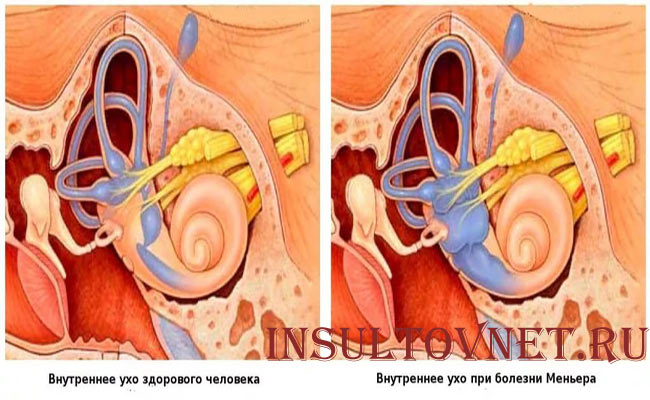 Often this pathology occurs due to a head injury. A person often experiences other symptoms in combination with dizziness. This feeling may persist for a long time in the absence of medical assistance. For example, you will feel constantly dizzy for at least 1–2 weeks.
Often this pathology occurs due to a head injury. A person often experiences other symptoms in combination with dizziness. This feeling may persist for a long time in the absence of medical assistance. For example, you will feel constantly dizzy for at least 1–2 weeks.
The whole point is that a person’s blood circulation in the area where the inner ear is located is disrupted. Fluid accumulates in this area and begins to press, creating additional pressure against the background of destruction of the temple bone due to injury to this area. Where the nerves leading from the brain to the inner ear are also damaged.
The risk of developing Menor's disease increases. When at first the head begins to feel dizzy only slightly, but only after some time it gradually intensifies. Here, a lot depends on the strength of the injury, the more serious it is, the more complex, naturally, its symptoms.
This may include signs of nausea, vomiting, headache, and even loss of consciousness for the victim. Sometimes this is bleeding from the ear canal or the discharge of clear fluid, usually this happens in those people who have suffered severe trauma in the form of a fracture of the main bone of the skull.
EPILEPTIC ATTACK

The disease does not always begin with a seizure. In fact, its symptoms can be quite diverse. For example, a patient with epilepsy becomes very unsteady with symptoms of dizziness.
The first option - an increase in aura with dizziness - is a harbinger of epilepsy. Further, if this is not paid attention to, the patient may experience convulsive seizures. But if you look closely at such a person, you may notice the lack of live facial expressions on his face, natural movements in the arms and legs.
And the second option is when dizziness replaces convulsions in epilepsy. That is, epilepsy can be determined by one main symptom of dizziness. This is temporal lobe epilepsy, which occurs as a result of an increase in excitation in the zone of the temporal lobe of the brain.
DISEASES OF THE CARDIOVASCULAR SYSTEM

Cardiovascular diseases are often the cause of dizziness. These include: stroke, cerebral atherosclerosis, arterial hypertension, hypertensive crisis.
To describe a stroke, it occurs with a sharp increase in blood pressure, signs of dizziness, weakness, and speech impairment. The result is atherosclerosis of the cerebral arteries, blockage of the cerebral arteries with a thrombus, rupture of an aneurysm, high arterial pressure.
What are the symptoms of a stroke:
- My head hurts and I feel dizzy.
- Sleepy.
- Sensitivity is impaired.
- Visual and speech abilities deteriorate.
- The patient staggers and loses motor control in space.

If your loved one there are such symptoms, do not hesitate for a second, call for him ambulance. It is advisable to do this in the near future, otherwise it may lead to his sudden death. After all, precisely because of how much it will be provided health care in case of a stroke, doctors will be able to quickly achieve a positive prognosis in the patient’s recovery.
That is why you need to be extremely attentive to a relative who often suffers from high blood pressure, especially if he is suffering from a hypertensive crisis. When the patient’s blood pressure readings can rise to the very limit, to such a state that it is impossible to cope on their own until a doctor arrives.
For example, if you eat a lot of fatty foods, there is a risk of cerebral atherosclerosis, accompanied by dizziness and gait disturbance. What happens against the background of the formation of atherosclerotic plaques.
WHAT CAN BE DONE

If you periodically feel nauseous and feel very dizzy while at home, you can use the following tips:
- Lie down on the bed. It is very important that the room is dark and quiet. This way, you can improve blood flow to the brain and calm down.
- Soak a terry towel in cool water, wring it out and place it on the frontal or back of the head for a while. Next, the procedure can be repeated.
- The head hurts and feels dizzy; it is painful to move your eyes; to alleviate this condition, it is advisable to focus on one fixed point in the distance. Or you can lie down for a while with your eyes closed.
- A chilled coffee drink may help relieve lightheadedness.
- If you feel dizzy in the morning, one glass of mint infusion will help. Further, to enhance the effect, this decoction can be brewed again.
- You may feel dizzy, perhaps due to a lack of phosphorus in the body. It is found in fish, nuts, cheese and eggs.
Sometimes, due to low immunity, signs of dizziness begin to appear; in this case, a positive effect can be achieved through hardening. To do this, you need to take water procedures daily, gradually lowering the water temperature.
FOLK METHODS

If often feel dizzy You can use the following folk remedies:
- Brew 15 g for 250 ml of water. dry lemon balm.
- Before each meal, eat 1 tbsp. l. seaweed.
- I suddenly started feeling dizzy, take a drink nettle infusion. To do this, take 1 tbsp. l. nettle and pour 500 ml of hot water over it, leave for 4 hours. After straining the broth, add 100 ml of apple juice. Use every time before meals.
- Mix half a glass of camphor oil with 1 tsp. juniper and 2 tsp. fir oil. The prepared extract should be smeared during dizziness on the area above the lip, eyebrows, temple area and ears.

In particular, if you feel dizzy several times a day, the following set of exercises that need to be performed regularly may be useful:
- Slowly tilt your head all the way to your chest with your chin forward. The exercise is recommended to be done every day.
- Slowly alternate bending your head to the right and left to the shoulder.
- Turn your neck first to the left, then in the opposite direction, down. Then take the starting position.
- The exercise is similar to the previous one, but everything is done in reverse.
WHEN YOU NEED AN EMERGENCY

If you notice for the third day in a row a manifestation of weakness in the body, deterioration of vision, as well as noise in the ears accompanied by headaches. There is no need to tolerate them; in this case, medical assistance is needed, preferably a home call. Because against the background of such symptoms, along with increasing dizziness, there is a risk of losing consciousness. What often happens in people with poor blood circulation in the brain due to a stroke of the brain.
For example, if you receive a severe intracranial concussion, the sick person may suddenly develop headache, he will constantly be tormented by tinnitus, nausea and dizziness for several days. This should not be overlooked; sometimes this indicates poisoning by toxins or acute symptoms migraine.
Dizziness- This symptom which almost every person has experienced at least once in their life. Usually, when you feel slightly dizzy, many people tend to perceive this as a sign of overwork.
There are many causes of dizziness. Some of them really indicate fatigue or other functional conditions, while others are associated with various diseases, sometimes very serious.
Why does a healthy person feel dizzy?
A healthy person may feel dizzy due to the following reasons:1. Adrenaline rush. This happens in stressful situations, during stage performances, air travel, etc. At this time, a large amount of the stress hormone adrenaline enters the human blood. It constricts blood vessels, increases blood pressure and interferes with the delivery of oxygen to the brain. This is completely normal and is not associated with any pathologies.
2. Fast travel. In these cases, the head is dizzy because the person expects movement in one direction, but it happens in the other. The balance organ cannot rearrange itself and adequately perceive the nerve impulses coming to it. This is why many people get dizzy when they ride on carousels.
3. Impaired gaze focusing. This is especially evident at altitude. When a person looks into the distance for a long time, the eye muscles relax greatly. As soon as the gaze is transferred to closer objects, there will be a feeling that they are rotating.
4. Malnutrition. This reason currently occurs not only among people of low social status. Many office workers and employees of business agencies often work on irregular schedules, and instead of eating a full meal, they practice snacking. Long breaks between meals. This leads to the fact that the brain constantly does not receive the required amount of glucose.
5. Many people feel dizzy when making sudden turns, bends, or rotational movements. This is not always a sign of some disease. For example, this condition is common among adolescents, in whom all blood vessels, including those of the brain, are in the process of growth.
Common causes of dizziness - video
What medications can make you feel dizzy after taking them?
The annotations for many medications indicate that the patient may feel dizzy after taking it. But in some medications this property is especially pronounced:1. Antiallergic drugs. Diphenhydramine, which is currently used relatively rarely, has a particularly strong effect on the nervous system and the balance organ.
2. The most powerful groups of antibiotics and antiseptics.
3. Tranquilizers and strong sedatives.
In general, dizziness is a common side effect of many medications that act on the nervous system.
Bad habits that cause dizziness?
 Often at a doctor’s appointment you can hear a complaint of this kind: “when I smoke, I feel dizzy.” When smoking, everyone gets a little dizzy. This is due to the fact that nicotine, penetrating into the blood, dilates the blood vessels of the brain.
Often at a doctor’s appointment you can hear a complaint of this kind: “when I smoke, I feel dizzy.” When smoking, everyone gets a little dizzy. This is due to the fact that nicotine, penetrating into the blood, dilates the blood vessels of the brain. Dizziness - characteristic feature hangover syndrome. In this case, the symptom is associated with poisoning with ethyl alcohol and its processing products in the body. There is swelling of the brain, its small capillaries, and increased blood pressure. Against the background of these pathological changes a person is worried about dizziness and other symptoms:
- headache;
- general feeling of depression, weakness;
- bad mood and decreased emotional background;
- nausea and vomiting.
Dizziness due to pathologies of the brain and cranial organs
True dizziness (vertigo)
Whatever position a person is in, the tone of his muscles is redistributed in such a way that the body maintains balance in space. Two anatomical structures are responsible for this function:1. The vestibular apparatus is an organ of balance that is located in the inner ear.
2. The cerebellum and cerebral cortex contain the main nerve centers responsible for balance.
Severe dizziness and nausea: symptoms of damage to the vestibular apparatus
With various pathologies of the balance organ located in the inner ear, clinical picture, which is called “true dizziness”, or “vertigo”. The patient becomes dizzy and has the following symptoms:- hearing impairment;
- cardiopalmus;
- nausea and vomiting;
- increased sweating.
Benign positional vertigo
Benign positional vertigo is a disease associated with the deposition of salt crystals in the inner ear. In this case, the head begins to feel dizzy when turning, bending, or changing the position of the body in space. The attack usually lasts no more than a few minutes.The patient does not always notice that his head is dizzy in certain body positions. In this regard, with vertigo it is not always possible to establish an accurate diagnosis.
Impaired blood flow in the inner ear
May be due to various reasons. Most often, vascular atherosclerosis leads to this condition. If the arteries of the brain are simultaneously affected, then dizziness is combined with headaches, increased blood pressure, memory impairment and other characteristic symptoms.Meniere's disease
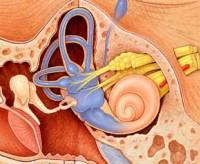 Meniere's disease is a pathology in which dizziness is noted as a result of a strong increase in fluid pressure in the inner ear. The causes of this condition have not been fully elucidated, but among the main ones it is worth mentioning vascular disorders, past and inflammatory diseases of the inner ear, craniocerebral injuries.
Meniere's disease is a pathology in which dizziness is noted as a result of a strong increase in fluid pressure in the inner ear. The causes of this condition have not been fully elucidated, but among the main ones it is worth mentioning vascular disorders, past and inflammatory diseases of the inner ear, craniocerebral injuries. When visiting a neurologist, the patient complains that he is dizzy, as well as other symptoms:
- imbalance: at first, the patient's gait becomes shaky, uncertain, and then he cannot walk normally at all;
- nausea and vomiting;
- decreased blood pressure (sometimes increased), headaches;
- sensation of noise, ringing in the ears.
Meniere's disease usually progresses gradually over time. Hearing loss increases, the patient notes that his head is spinning more and more often. In rare cases, all symptoms disappear completely after 7–10 years. Applicable drug treatment, which helps to reduce seizures, but is not able to eliminate the cause of the pathology.
Suddenly very dizzy and fever: labyrinthitis
The labyrinth is inflammatory disease inner ear. Usually, the infection enters here with the bloodstream in viral and bacterial diseases. Often internal otitis media is a complication of influenza and colds.Labyrinthitis causes severe dizziness for several days and weeks. Other symptoms of the disease:
- there may be an increase in body temperature;
- sometimes the attack is so severe that it is accompanied by nausea and vomiting;
- noise and congestion in the ears, hearing loss.
If there are suspicions that the head is spinning precisely because of labyrinthitis, then it helps to make a final diagnosis general analysis blood, magnetic resonance or computed tomography of the inner ear. Labyrinthitis is treated by an ENT doctor. Antibacterial, antiviral, anti-inflammatory drugs are prescribed medications.
Inner ear injuries
Often, inner ear injuries are combined with traumatic brain injuries, leading to dizziness and other symptoms. The head begins to feel very dizzy as a result of the injury:- blood circulation in the inner ear is impaired;
- fluid pressure in the cavity of the inner ear increases;
- the integrity of the inner ear is compromised as a result of injuries to the temporal bone;
- the nerves that extend from the inner ear to the brain are damaged.
The head begins to feel very dizzy immediately after the injury, or after some time. At the same time, symptoms such as nausea and vomiting, loss of consciousness, and headache may occur. If you feel very dizzy, and at the same time blood or clear liquid flows from the ear, then a serious injury is suspected - a fracture of the base of the skull. The victim must be immediately taken to the emergency room or trauma department of the hospital.
Vestibular nerve damage
The vestibular nerve departs from the organ of balance and carries nerve impulses about the position of the human body to the brain. When it is damaged, you feel dizzy and other characteristic symptoms occur (nausea, vomiting, sweating, increased blood pressure, etc.).The causes of dizziness due to damage to the vestibular nerve are the following pathologies:
- resulting from circulatory disorders, injuries, bacterial and viral infections;
- traumatic injuries of the vestibular nerve;
- tumors of the vestibular nerve.
Pathologies of the nervous system
There are some characteristic features by which it can be accurately determined that dizziness occurs as a result of disorders of the nervous system, and not of the vestibular apparatus. Firstly, with neurological disorders, the head is a little dizzy - this symptom is never very pronounced. Secondly, there are no signs such as sweating and palpitations, and there is almost never nausea or vomiting. Attacks always develop gradually, increase over time, and then also gradually pass.Dizziness and headache due to cerebral atherosclerosis
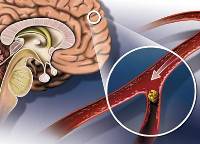 cerebral vessels - a condition in which cholesterol plaques are deposited in the lumen of the cerebral arteries. At the same time, blood flow to various parts of the brain is disrupted, they begin to experience oxygen starvation. In this case, the patient is dizzy and weakness occurs, and other symptoms of atherosclerosis are also characteristic:
cerebral vessels - a condition in which cholesterol plaques are deposited in the lumen of the cerebral arteries. At the same time, blood flow to various parts of the brain is disrupted, they begin to experience oxygen starvation. In this case, the patient is dizzy and weakness occurs, and other symptoms of atherosclerosis are also characteristic: - headache;
- it seems to the patient that the ground seems to be slipping away from under his feet, he falls through and flies down;
- impairment of memory, attention, thinking;
- increased fatigue;
- at night;
- mood disturbance, increased irritability.
Skull injuries
Dizziness is one of the symptoms of traumatic brain injury. A person who has hit their head is usually very dizzy and has other symptoms:- headache;
- nausea and vomiting;
- lethargy, weakness, drowsiness;
- loss of consciousness.
Dizziness and other symptoms of traumatic brain injury are expressed in varying degrees, depending on its severity. With a concussion, they are minimal or may be completely absent. And such injuries as brain contusion and diffuse axonal damage lead to severe disorders and external manifestations.
No matter how minor the injury may seem, the victim must be taken to the emergency room.
Usually, in adults, dizziness and other manifestations occur almost immediately after an injury. Children have a “light period” that lasts up to three days. At this time, nothing bothers the child, but brain disorders continue to grow. Therefore, even with complete well-being, children who hit their heads badly need to be shown to a traumatologist and neurologist as soon as possible.
Often feel very dizzy and have other symptoms: brain tumors
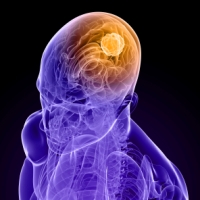 With brain tumors, dizziness is quite characteristic symptom. It occurs in fits and starts. The frequency of attacks and their severity depend on the size and location of the tumor. If it is small, then the dizziness is relatively rare and not very strong. Dizziness may not occur immediately, but over time, when the tumor leads to a significant increase in cerebral edema.
With brain tumors, dizziness is quite characteristic symptom. It occurs in fits and starts. The frequency of attacks and their severity depend on the size and location of the tumor. If it is small, then the dizziness is relatively rare and not very strong. Dizziness may not occur immediately, but over time, when the tumor leads to a significant increase in cerebral edema. When dizziness occurs due to brain tumors, the patient experiences very unpleasant sensations. It seems to him that all the objects around him are spinning, and the ground is moving away from under his feet, as if he himself is falling through somewhere. There are other characteristic symptoms:
- headache;
- nausea and vomiting;
- impaired balance and coordination of movements: the patient’s gait becomes shaky and uncertain;
- increased sweating, rapid heartbeat, drop or increase in blood pressure;
- epileptic seizures, especially if the tumor is in the area frontal lobes brain;
- so-called focal neurological symptoms: disturbance of movements in certain muscle groups and sensitivity in certain areas of the skin.
Epilepsy
Many people associate the word “epilepsy” with a patient who is having a seizure. In fact, this disease has much richer and more diverse symptoms. One of the manifestations of epilepsy is dizziness. It occurs in two cases:1. Often, when the head is dizzy and numb, this is a symptom of an aura (harbingers) of epilepsy. After an attack of dizziness, a characteristic seizure. In general, for the aura in front epileptic seizures Characterized by numbness in the head and other parts of the body.
2. Dizziness can also replace convulsions. In this case, it is the main manifestation of epilepsy. This is how the so-called temporal lobe epilepsy manifests itself, in which the focus of pathological excitation is located in the temporal lobe of the brain.
Multiple sclerosis
Dizziness is a common symptom of multiple sclerosis, a neurological disease characterized by the development of an inflammatory process in the brain and destruction of the nerve sheaths. Patients with multiple sclerosis experience dizziness in the form of attacks, with nausea, vomiting, and impaired coordination of movements. In general, the symptoms of the disease resemble inflammation of the inner ear, so the diagnosis cannot always be made accurately.If multiple sclerosis starts with dizziness, this often indicates that the disease occurs in a benign form. In general, the pathology has very diverse manifestations:
- weakness in legs and arms;
- visual, hearing, speech impairments;
- impaired skin sensitivity in certain areas;
- disturbance of movements in certain muscle groups;
- muscle tone disorders;
- dysfunction of the pelvic organs: urination, defecation.
Migraine
Statistics show that people who suffer from migraines experience dizziness more often than healthy people. Dizziness can be directly associated with a migraine attack as follows:1. Dizziness is often a component of the aura (harbinger) of migraine headaches.
2. If during a severe headache the patient also becomes dizzy, this further worsens his condition.
3. Sometimes an attack of dizziness replaces a headache altogether. In this case, migraine is quite difficult to diagnose.
I started feeling dizzy after experiencing severe stress:
psychogenic dizziness
Above we have already described dizziness as a symptom of a stressful situation. During this time, a large amount of the hormone adrenaline is released, which leads to a change in blood flow in the brain and to dizziness. This reaction is normal for many healthy people.But after a strong stressful situation, a series of stresses, with neuroses, panic attacks and other psychogenic disorders, dizziness may begin to bother you periodically, in the form of attacks.
In these conditions, the head begins to spin unexpectedly, spontaneously, or in certain situations: while staying in a stuffy, cramped room, among a large crowd of people, in the subway, etc. The patient complains not even about dizziness as such, but about that objects seem to sway before the eyes, the overall picture “floats”, leading to a feeling of faintness and intoxication. Sometimes a person claims that he is dizzy and there is a veil before his eyes, a feeling of some kind of movement inside the head. Other symptoms accompanying psychogenic dizziness:
- a feeling as if a person is losing consciousness, but complete loss of consciousness, as a rule, never occurs;
- feeling of strong heartbeat;
- rapid breathing;
- increased sweating.
To say for sure that dizziness is caused by psychogenic causes and not by some disease, you need to conduct a thorough examination of the patient. He must be examined by a neurologist, therapist, or ENT doctor.
Dizziness in other diseases
How do you get dizzy with osteochondrosis and other diseases of the spinal column?
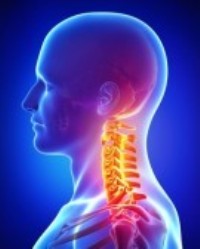 Cervical is degenerative disease, which affects the cervical vertebrae and intervertebral discs. Factors that provoke the disease and its exacerbations: hypothermia, excessive physical activity, prolonged stay in a monotonous tense position, injuries, etc.
Cervical is degenerative disease, which affects the cervical vertebrae and intervertebral discs. Factors that provoke the disease and its exacerbations: hypothermia, excessive physical activity, prolonged stay in a monotonous tense position, injuries, etc. With osteochondrosis, dizziness usually begins in the morning and continues throughout the day. The symptom is especially severe if the patient sleeps in an uncomfortable position, on a high pillow.
Dizziness with osteochondrosis is always accompanied by other characteristic symptoms:
1.
Headaches and neck pain. They can be very pronounced, cause suffering to the patient, and reduce his performance.
2.
General weakness, lethargy, drowsiness.
3.
During head turns and other neck movements, the patient feels a crunching sound that can be heard from a distance.
4.
With osteochondrosis, you feel dizzy during sudden movements in the neck. At the same time, the patient sometimes complains not about dizziness, as such, but about the fact that “the ground is disappearing from under his feet,” “everything around him is spinning.”
5.
With severe exacerbation of cervical osteochondrosis, severe headache and dizziness, severe weakness, cold sweat, nausea and vomiting are noted.
6.
Sensitivity in the shoulder girdle and upper extremities is impaired, and weakness of the arms is noted.
The diagnosis of cervical osteochondrosis is established after computed tomography and magnetic resonance imaging. The disease is treated by a neurologist and orthopedist.
Constantly feeling dizzy when working at the computer for a long time
In life modern man computer technology plays a huge role. They have made the work of many specialists much more convenient and allowed them to optimize the work of many organizations in the service sector. At the same time, today there are many people who, due to the nature of their work, are forced to spend a long time in front of a computer monitor, and suffer from chronic health disorders due to this.People who spend long periods of time at the computer experience dizziness due to the following reasons:
- constant increased tone of the muscles of the back and shoulder girdle;
- constant stay in a monotonous uncomfortable position;
- eye strain and, as a consequence, increased intracranial pressure.
Dizziness with high blood pressure
Arterial is a disease that is most common among older people. High blood pressure causes dizziness and other symptoms:- headache;
- weakness, lethargy, drowsiness;
- symptom of “floaters before the eyes”: the patient sees many small colored flashes in front of him;
- tinnitus, ringing, pulsating sensation;
- feeling of increased heartbeat or interruptions in heart function;
- feeling of heat, redness of the face;
- with a significant increase in blood pressure, loss of consciousness is observed.
If a person begins to suddenly feel dizzy and other symptoms appear hypertensive crisis, then you need to immediately call an ambulance.
Arterial hypotension
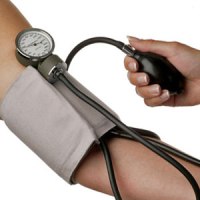 Arterial hypotension is a pathological condition characterized by a decrease in blood pressure. It can be congenital, or serve as a symptom of various diseases. With arterial hypotension, you feel dizzy and have other symptoms:
Arterial hypotension is a pathological condition characterized by a decrease in blood pressure. It can be congenital, or serve as a symptom of various diseases. With arterial hypotension, you feel dizzy and have other symptoms: - weakness, lethargy, cold sweat, darkening of the eyes;
- nausea and vomiting with a sharp drop in pressure;
- darkening of the eyes;
- most often the head feels dizzy when standing up;
- pallor;
- headache;
- deterioration in stuffy rooms, feeling of lack of air.
Severe weakness and dizziness: acute and chronic blood loss
The cause of oxygen starvation of the brain and dizziness may not only be a violation of blood pressure in the brain vessels. This may also be a decrease in the volume of circulating blood due to acute blood loss. The following types of bleeding are distinguished:1. External: associated with injuries to the skin and underlying tissues.
2. Internal: associated with damage to internal organs.
Bleeding is also divided into acute and chronic:
1.
In acute bleeding, a person simultaneously loses a large amount of blood.
2.
Chronic bleeding creates a constant shortage of blood volume in the body.
With massive bleeding, you feel very dizzy, there is weakness, and pale skin. The face acquires characteristic pointed features. The patient experiences severe thirst, and then his consciousness is impaired, he falls into a state of shock. Blood pressure drops sharply. If medical assistance is not provided in time, this condition is life-threatening.
Vegetative-vascular dystonia
Vegetative-vascular dystonia is a functional condition in which the regulation of the body’s autonomic functions, which include vascular tone, is disrupted. The disease can occur in one of two types:1. Hypertensive - in this case, blood pressure is increased, all organs and tissues are also in a state of increased tone.
2. Hypotonic – characterized by a reduced level of blood pressure.
With both forms of pathology, one may feel dizzy, and other symptoms are noted: headaches, digestive disorders (for example, some patients have a stomach ache and dizziness), emotional disturbances, weakness, lethargy, nausea, vomiting, etc.
Vegetative-vascular dystonia is most common among adolescents. All her symptoms are caused functional disorders, so when proper treatment They usually go away completely with age. A neurologist diagnoses and treats the disease.
Vegetative-vascular dystonia
What diseases cause abdominal pain and dizziness?
 The combination of symptoms such as dizziness and abdominal pain is quite common. It can be caused by the following pathologies:
The combination of symptoms such as dizziness and abdominal pain is quite common. It can be caused by the following pathologies: 1. Poisoning. In this case, the body loses a large amount of fluid, blood pressure drops, including in the vessels of the brain. In addition, toxic substances absorbed into the blood affect the nerve cells.
2. Intestinal infections. The dizziness occurs due to the same reasons as in case of poisoning.
3. Bleeding from organs abdominal cavity. This condition has already been discussed above. There is dizziness, weakness, pallor, a drop in blood pressure.
4. Short bowel syndrome occurs when a large segment of the bowel has been removed from a patient. small intestine. At the same time, all food passes through the intestine too quickly, a lack of nutrients develops in the body and takes place.
5. Malabsorption syndrome is a violation of the absorption of nutrients in the intestine.
6. - a violation of the composition of the intestinal microflora, which manifests itself in constant diarrhea, pain and bloating, a violation of the general condition, dizziness, etc.
The diagnosis and treatment of these conditions is carried out by a therapist and gastroenterologist.
A child’s head is spinning: what diseases to look for first?
"suspicion" arises?
It is often very difficult to understand that a child is dizzy. First, young children cannot really explain what specifically worries them. Secondly, a child may deliberately hide the presence of a symptom from adults, fearing that he will be subjected to painful medical procedures. A sign that your baby is dizzy is his refusal to get out of bed, an unsteady gait, and a visible lack of coordination of movements. Dizziness in a child in most cases is caused by the same reasons as in an adult. The most common of them, characteristic specifically for childhood, are:
- Acetone crisis is a condition characterized by impaired pancreatic function and digestive disorders, loss of large amounts of fluid, pallor, and dizziness.
- Motor disease is a little-studied pathology, which is based on mismatch nerve impulses, which enter the brain from different organs feelings.
- Poisoning with drugs and household chemicals.
- A child may feel dizzy as a result of too much acute diseases(for example, when accompanied by a significant rise in body temperature).
- Migraine and vegetative-vascular dystonia.
- Injuries and bleeding.
- Infectious diseases: encephalitis and meningitis - in this case the child’s head becomes very dizzy, the body temperature rises, and general state.
What conditions cause dizziness during pregnancy?
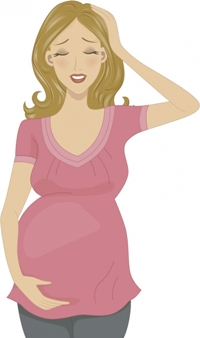 In general, dizziness and nausea during pregnancy can be considered normal if they occur from time to time and have virtually no effect on the general condition of the woman. If the head is expectant mother is spinning frequently and violently, then one of the following diseases can be assumed:
In general, dizziness and nausea during pregnancy can be considered normal if they occur from time to time and have virtually no effect on the general condition of the woman. If the head is expectant mother is spinning frequently and violently, then one of the following diseases can be assumed: 1. Iron-deficiency anemia associated with an elemental lack of iron in the diet of a pregnant woman. The problem can be solved by taking additional iron and vitamins.
2. Hypoglycemic conditions are associated with a drop in glucose levels in a woman's bloodstream. A balanced diet will help.
3. Osteochondrosis is a common problem during pregnancy. How dizziness occurs with this disease was discussed above.
4. If a woman feels dizzy when standing up, then this can also be regarded as a variant of the norm: the blood flow in her body is simply redistributed in such a way that the brain begins to experience a lack of oxygen.
5. If a woman has followed and continues to do so during pregnancy, then dizziness is a completely expected symptom.
If a pregnant woman periodically experiences dizziness, then no matter how normal her condition may seem, it is still worth visiting a doctor.
Good afternoon friends! Today I'll tell you what to do if you feel dizzy, we'll look at serious reasons to worry, and reasons for feeling unwell that may not cause you concern. The state when we are suddenly suddenly led to the side when we walk, suddenly stand up or bend over, frightens us. Sometimes your head floats even when you are lying down, and the dizziness can last for quite a long time or disappears in 1-2 seconds. And the question arises: “Why did this happen?”
Dizziness can occur suddenly, in most cases with normal blood pressure, in addition, the person often feels nauseous. When this happens constantly, then it’s time to think and find out why the trouble is happening. The only reason that should not cause anxiety is when your head is spinning with happiness.
In fact, spinning (the medical term is vertigo) is not a disease, but only a signal that something is wrong with you. Just like, for example, high temperature or, which I wrote about, read it by clicking on the link.
Why does trouble arise? Only a doctor should give the answer to the question why your head is spinning, but there are situations in which there is no need to go to the clinic. Which? Let's find out...
Why do you feel dizzy?
The main cause of dizziness is normal indicators pressure is an uneven supply of blood to different parts of the brain. There are many reasons for this.
No need to be scared:
- You should not worry when a problem arises while driving a vehicle, riding a boat on the sea, or on a carousel.
Your untrained vestibular apparatus is to blame. During movement, the brain simultaneously analyzes several signals at once and a kind of confusion arises, during which we experience unpleasant sensations. This is called “seasickness” and will go away as soon as the provoking source disappears.
- The next reason why trouble can occur is loss of balance if you throw your head back or perform exercises that involve turning your head.
This is not a symptom of the disease at the moment - train your vestibular apparatus and you will be fine.
- Many of us are afraid of heights, which is a normal condition. When you feel dizzy in this case, just look into the distance for a long time and the discomfort will quickly pass.
- When following a diet for a long time (hello, losing weight!), or when you don’t eat on time, you may also feel dizzy. The cause is a lack of glucose in the blood.
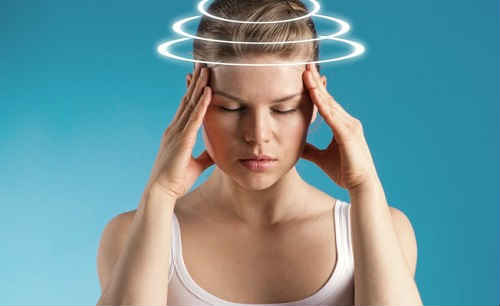
Dizzy after stress
The spinning begins abruptly, sometimes making you feel nauseous. Often occurs after an unpleasant scolding from a boss, during a performance on stage, in front of an audience, or sudden fear. This is completely normal and your health is fine.
The reason is too much adrenaline, which causes vasospasm, causing the blood supply to the brain to deteriorate.
Dizziness in women
The causes that lead to constant dizziness in women are most often diseases, more about them below. But there are two states, physiological characteristics which are considered the norm, and the problem should not cause concern.
During pregnancy. Changes occur in the body as a whole, which cannot but affect overall well-being.
A woman expecting a baby reacts more sharply to changes in her environment: she feels bad in transport, and responds negatively to overheating and stuffiness.
If you feel unwell for a longer period of time, leading to unsteadiness, loss of balance, severe weakness, or nausea, consult a doctor for help.
Advice: If you feel dizzy, lie down, sit down and lower your head down.
The second female condition is menopause. During the period of hormonal changes, the body responds with malaise. Especially often, a woman is bothered by hot flashes, which can cause severe dizziness.
The trouble occurs due to abundant blood flow to the top of the head. Additionally, hot flashes are accompanied by weakness, nausea, darkening of the eyes, and tinnitus.
What can be done in this case:
- Keep your blood pressure levels normal.
- Do not stand up or bend over abruptly.
- Ensure you have good quality sleep.
- Visit a doctor and get treatment for your underlying diseases - menopause causes them to worsen, causing dizziness.

Diseases accompanied by dizziness
Often, in addition to circling at normal pressure, a number of symptoms appear that should alert you:
- The head moves suddenly, without obvious reasons.
- Nausea, slight, you just feel nauseous, but sometimes quite severe.
- Weakness.
- The malaise lasts for a long time, all day or several days.
- Shakes when you get up at night.
- Coordination of movements is impaired.
- Uncertain gait, staggering (many patients complain: running around), while walking suddenly leads to the side.
- Rocks while lying down.
Even if the discomfort lasts a few seconds and quickly passes, the condition is a reason to seek medical help.
- Vestibular apparatus. Otitis media can be a previous disease, pay attention to this - the vestibular apparatus is located in our inner ear. The disease manifests itself acutely - it seems to you that you are moving in the space of your own body or objects around you. Nausea, vomiting, cold sweats are all symptoms of vertigo disease, or true dizziness.
- Meniere's disease. The malaise torments for a long time, occurs in an attack, unexpectedly. There is noise or whistling in the ears, and hearing has decreased significantly. With this disease, the fluid washing the vestibular and auditory part of the ear becomes larger than necessary, or the electrolyte ratio has changed in it. Interestingly, a person can perfectly hear a whisper, but he does not hear ordinary speech. Occurs after otitis media, traumatic brain injury.
- Benign positional paroxysmal. Another reason associated with a disease of the vestibular apparatus. It starts when you suddenly stand up or bend over, that is, change the position of your body, and only with a certain tilt of your head. The attack does not last long and passes with rest. The essence of the disease is that some receptors in the vestibular apparatus are destroyed. It is difficult to make a diagnosis, since patients often complain of weakness rather than dizziness.
- Brain tumor. The problem begins gradually, imperceptibly, and is accompanied by hearing loss on one side. See a doctor immediately!
- Rupture of the membrane located between the inner and middle ear. Hearing loss occurs simultaneously with dizziness and occurs suddenly. An additional symptom of the disease is that when you sneeze or cough, you feel even more dizzy.
- Migraine. Nausea, sensitivity to light and sound, tinnitus, plus staggering and spinning.
- Cranial – brain injury, resulting in a concussion. Additional symptoms are headache and nausea.
- Cerebrovascular accident. The whirling begins abruptly and is accompanied by blurred vision, weakness, lack of coordination, and sometimes loss of consciousness. The slightest suspicion of a stroke, immediately call an ambulance. , you can read more by following the link.
- Psychogenic – neurosis, depression – another cause of illness. The sick person feels fog in the head, nausea, and fear at the same time as debilitating dizziness. It can continue for a long time, weeks, or even months.
- . The discomfort is aggravated by movement, especially when you turn your neck.
- Taking medications. Taking certain medications can cause a problem - antiallergic drugs diphenhydramine or suprastin, cold remedies - Coldrex, Theraflu, sleeping pills, some antibiotics. Contact your doctor and change the drug.
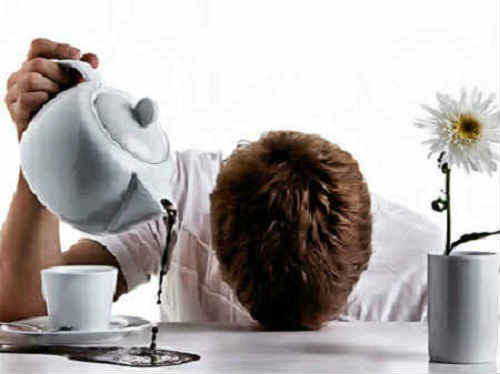
What to do if you feel dizzy
- Quite often the malaise is accompanied by nausea. In this case, do not try to restrain yourself.
- Sit down and lie down immediately. The head and shoulders should be at the same level, in this position the blood supply to the brain improves.
- Lie down, preferably keeping the room dark. Place ice and a towel soaked in cold water on your forehead.
- Close your eyes, or fix your gaze on some stationary object.
- Drink cold, strong coffee.
- Peppermint infusion. It is especially useful in the morning, immediately after getting up. Drink tea after lunch and dinner instead of tea and the problem will go away.
- More often include foods rich in phosphorus in your daily diet - fish, nuts, cheese and eggs.
- Daily douches will bring you great benefits. Do not start abruptly, first pour your feet, let the water be at room temperature at first, but gradually make it cooler.
Folk remedies to help you
- For 1 cup of boiling water, brew 1 tbsp like tea. a spoonful of lemon balm.
- Before meals 1 tbsp. a spoonful of seaweed.
- Nettle decoction. 1 tbsp. Pour a spoonful of nettle into 0.5 cups of boiling water and leave for 4 hours. Strain, add 100 ml. apple juice and drink three times a day 20 minutes before each meal.
- 10ml. juniper oil, 30 ml. fir oil, 100ml. Mix 100% camphor oil and shake well. For dizziness, lubricate the points above the eyebrows, above the upper lip, temples, and behind the ears.
In conclusion, I want to give you a set of exercises that will help you cope with constant dizziness. The only condition that requires strict adherence is regular implementation.
Exercise for coordination and balance
- Slowly tilt your head forward towards your chin, as low as possible. And also, very slowly, without tension, lift.
- Alternately tilt your head to the right and left towards your shoulder. Do this very slowly.
- Trace the figure eight from left to right, then down and forward.
- The same as in the previous exercise, only in the vertical and horizontal directions.
Friends, if you are constantly dizzy, while you are experiencing other ailments, be sure to contact a neurologist and, as accurately as possible, describe the symptoms to him in full. A detailed and detailed description will help the specialist understand and make a correct diagnosis.
Be healthy, and if you are sick, get well. I found a video where the host of the famous TV show E. Malysheva gives good advice how to cope with illness. With love... Galina Nekrasova.
Many life situations find an instant response from the body. Body and internal organs immediately or after some time, react to all changes. Very often, patients complain to doctors about dizziness. This symptom may be a one-time occurrence during a happy emotional outburst. But in some cases, this becomes a cause for great concern. To get rid of unpleasant sensations you need to know why you feel dizzy. Only after a thorough diagnosis is it easy to find the cause and eradicate it.
Dizziness - what is it?
Often, with the slightest stress or absolutely suddenly, a feeling of false movement of all objects in the field of vision may occur. This feeling may be accompanied by mild nausea and darkening of the eyes. At these moments, it seems that the ground is literally disappearing from under your feet. In medicine this is called Vertigo.

Dizziness (vertigo) is a physical condition that causes loss of balance. A false sense of movement appears. At this time, it seems that you are either in rotation, or all surrounding objects and people are in constant chaotic action in relation to you.
Absolutely everyone has experienced dizziness and weakness at least once. This is not a cause for serious concern unless it occurs very rarely. Most often, the cause may be overwork. But if symptoms often begin to occur in addition to other types of ailments, then you should seriously think about your health. Each type of dizziness has causes and treatments.
Types of dizziness
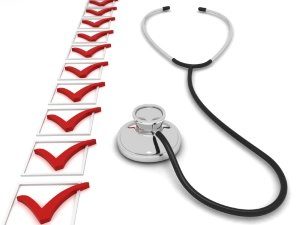 To determine the nature of dizziness, the doctor measures blood pressure during examination and asks a series of questions about past injuries and illnesses. In addition, the rhythm of life is taken into account last days and even weeks. The answers to these questions help determine what type of attack occurred. There are 4 of them :
To determine the nature of dizziness, the doctor measures blood pressure during examination and asks a series of questions about past injuries and illnesses. In addition, the rhythm of life is taken into account last days and even weeks. The answers to these questions help determine what type of attack occurred. There are 4 of them :
- Peripheral. The causes of dizziness of this kind are associated with the functioning of the vestibular apparatus and nervous system. In this case, the pain occurs suddenly and also passes quickly. The heartbeat is very strong, the ability to move is impaired. During this attack, sweating increases and hearing is impaired.
- Central. The country's leading specialists are studying the causes of such dizziness and treatment. The fault of the ailments lies with malfunctions of the brain. These are injuries, tumors, hemorrhages, etc. Such dizziness is very different from peripheral dizziness. The balance is not greatly disturbed. But the symptoms are persistent and intense and can last a long time. If dizziness is daily and accompanied severe pain headaches, nausea, vomiting and weakness - you should immediately consult a doctor.
- Systemic. Dizziness of this type occurs due to disruption of the muscular, visual or vestibular systems.
- Physiological. This is the most relatively safe type of dizziness. It is often caused by external influences. For example, motion sickness on a boat, a carousel ride, an unexpected outburst of emotions, etc. Physiological dizziness and weakness also arise from a lack of glucose. That is, during diets or occasional fasting, there is a high probability of an unpleasant illness.
What is the reason
 The signals entering the human brain may be slightly distorted. One of the physiological systems fails and then orientation in the surrounding space disappears. This can cause constant dizziness.
The signals entering the human brain may be slightly distorted. One of the physiological systems fails and then orientation in the surrounding space disappears. This can cause constant dizziness.
Don't be alarmed if you feel dizzy after a strong shake. This is absolutely normal. There are reasons that are not pathology. For example, these:
- Medicines often cause dizziness. All manufacturers indicate this in the “side effects” column. If you start taking a medicine that makes you dizzy, but the instructions do not indicate this, you should stop taking it or contact your doctor.
- Common causes of dizziness in women are diets. Malnutrition for any reason leads to a lack of glucose. Due to hunger and improper diet, the brain stops working properly and needs to be nourished. If you feel dizzy and at the same time weak, it is easy to get rid of it with the help of proper nutrition.
- When bending over or standing up suddenly, you may feel dizzy due to growing blood vessels. This is observed mainly in teenagers.
- Adrenalin. This hormone increases under stress. As a result of the jump, blood pressure increases, blood vessels narrow, which leads to temporary oxygen starvation of the brain. This is why a surge of adrenaline is almost always accompanied by dizziness.
Weakness and dizziness have a reason. If it is not dangerous, then you can take the simplest measures: take medicine for motion sickness or a sedative.
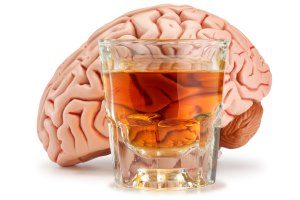 Depending on the totality of symptoms, it is possible to identify why disorientation in space occurs. If this happens periodically, the causes of dizziness and weakness may be the following:
Depending on the totality of symptoms, it is possible to identify why disorientation in space occurs. If this happens periodically, the causes of dizziness and weakness may be the following:
- osteochondrosis;
- smoking;
- alcohol consumption;
- epilepsy;
- a brain tumor;
- Meniere's disease;
- severe poisoning;
- influenza, ARVI;
- vegetative-vascular dystonia;
- stress;
- spinal injuries;
- pregnancy;
- menopause;
- otitis and other ear injuries;
- stroke;
- failure in the cerebral circulatory system;
- passive lifestyle (sedentary work);
- spinal cord diseases;
- impaired blood supply to the vestibular apparatus;
- anemia;
- oncology;
- intraocular pressure;
- hypertensive attacks;
- heart pathologies;
- hypothermia;
- heatstroke.
 As you can see, constant dizziness can be a symptom of a variety of diseases. To correctly assess the situation, you need to compare all the signs and carry out comprehensive examination organism.
As you can see, constant dizziness can be a symptom of a variety of diseases. To correctly assess the situation, you need to compare all the signs and carry out comprehensive examination organism.
What does dizziness feel like?
The appearance of vertigo is accompanied not only by a loss of balance relative to other objects. Dizziness has signs that allow you to determine the cause. The entire body is subjected to severe stress, and many unpleasant sensations arise. The main symptoms of dizziness are:
- feeling of heaviness in the head;
- double vision;
- loss of balance;
- sharp ringing in the ears;
- darkening of the eyes;
- hearing loss (one or both ears);
- illusion of spinning;
- slight increase in temperature (0.3 - 0.6 degrees);
- weakness;
- constant nausea.

Sometimes dizziness occurs in combination with severe nausea and high temperature. This is a reason to call an ambulance immediately. The following symptoms may appear:
- Headache attacks lasting more than 1 hour.
- A feeling of limited movement combined with headache. This may indicate osteochondrosis.
- Constant attacks of dizziness, coupled with unbearable pain and deafness in one ear, indicate a brain tumor. An ambulance should be called immediately.
- If speech impairment and lack of muscle sensitivity are added to the main symptoms, then we may be talking about a stroke.
- Loss of vision.
- Fainting.
Only by knowing what makes you dizzy and the reasons, you can start the right treatment in time.
In order to start treatment for dizziness on time, do not delay visiting a specialist. First of all, you need to visit a therapist. Then the doctor will refer you, if necessary, for examination to: a neurologist, ophthalmologist, otolaryngologist or endocrinologist. 
Based on examinations and interviews, specialists can find the cause of dizziness. For this purpose they often prescribe:
- MRI or CT;
- general blood analysis;
- general urine analysis;
- blood test for glucose;
- Doppler of cerebral arteries;
- acoustic impedance measurement;
- electroencephalography (study of the work of individual areas of the brain using electrical impulses);
- X-ray of the spine or occipital part of the skull;
- posturography (study of systems that ensure balance - visual, muscular, vestibular).
 Why men may feel dizzy worries many members of the stronger sex. Most often, suffering of this kind arises due to bad habits. It is the “hangover syndrome” that most often causes weakness and dizziness in men. Other reasons may be:
Why men may feel dizzy worries many members of the stronger sex. Most often, suffering of this kind arises due to bad habits. It is the “hangover syndrome” that most often causes weakness and dizziness in men. Other reasons may be:
- Not proper nutrition;
- sedentary work;
- stress in the family and at work;
- circulatory disorders;
- osteochondrosis.
Dizziness in men can be a signal of a serious illness. Even disturbances in the functioning of the prostate and other organs of the reproductive system can lead to periodic attacks. Each incident that occurs should be recorded and, if repeated, everything should be told to a competent doctor.
Dizziness in women
 Women are very often subject to headaches. These unpleasant sensations interfere with leading a full personal and social life. Dizziness in the fair sex is often associated with hormonal changes. The body quickly reacts to all changes and severe weakness and disorientation in space may appear.
Women are very often subject to headaches. These unpleasant sensations interfere with leading a full personal and social life. Dizziness in the fair sex is often associated with hormonal changes. The body quickly reacts to all changes and severe weakness and disorientation in space may appear.
Causes of dizziness in women:
- Pregnancy. During this period, a woman’s body undergoes enormous changes. Changes completely hormonal background and the entire body of the expectant mother. Very often, pregnancy is accompanied by low blood pressure, toxicosis, a decrease in hemoglobin, glucose and other essential microelements. All this makes me dizzy. General weakness and nausea may also accompany the entire 9 months. Many expectant mothers constantly feel dizzy. It is important to see a doctor and report all symptoms.
- Stress, emotional swings and depression. The female nervous system is considered more susceptible to external factors. Therefore, an adrenaline rush is a common occurrence. At this time, less oxygen reaches the brain, which leads to severe dizziness. The feeling can be caused either by a joyful event or not.
- Chronic lack of sleep. Work, household chores and chores take up a lot of time. Sometimes you have to limit yourself in the most important needs. Without sleep, the body begins to starve. The brain suffers without sufficient oxygen, and the nervous system also remains without the necessary elements.
- Disturbed vestibular apparatus. Some people, especially women, have an underdeveloped balance apparatus. In this case, there is a high probability of dizziness during the most ordinary activities: flying on airplanes, traveling in any transport.
- Blood pressure surges. Women who react to any weather changes suffer from headaches. Loss of balance can occur anywhere and at any time. When you feel dizzy from pressure surges, you need to immediately find support and lie down.
- Chronic diseases. Very often the disease does not show itself. In this case, the main symptom is frequent dizziness in women.
- Vertigo in women can be associated with the menstrual cycle or menopause.
What to do if you feel dizzy
What to do if you often feel dizzy? There are ways by which you can independently avoid unpleasant sensations or make them fleeting.
 If attacks of dizziness begin to bother you quite often and are accompanied by other symptoms, then you should undergo a comprehensive examination. There may not be any reasons for strong excitement.
If attacks of dizziness begin to bother you quite often and are accompanied by other symptoms, then you should undergo a comprehensive examination. There may not be any reasons for strong excitement.
So, what to do if you feel dizzy:
- Do not panic! This is the most important rule. It’s worth taking a breather and thinking about something good.
- An attack of dizziness that occurs can be quickly removed with ice or a wet towel applied to the forehead.
- Drink strong coffee.
- Lie down on a flat surface. It is important that the head and shoulders are at the same level. This allows oxygen to reach the brain faster.
- Go into a dark room and close your eyes.
- Go out into the fresh air or go to an open window.
- Take the appropriate medication (as prescribed by your doctor).
- If dizziness is accompanied by nausea, then do not endure it. Otherwise, the pain may worsen even more.
- Find support and try to focus your gaze on one non-moving object.
If you feel weakness, body aches and general malaise, then you should avoid sudden bends, turns, rocking, and lifting. All this can cause severe dizziness and nausea. Therefore, you need to know what to do if you feel dizzy.
Treatment
Vertigo interferes with full-fledged work and life. That is why you should look into dizziness - causes and treatment. The main medicines that can heal to the fullest extent possible:
- a group of antihistamines: “pipolfen”, “diphenhydramine” and others;
- group of sedative drugs: “andaxin”;
- medications for vomiting and nausea: “cerucal”, “metoclopramide”;
- a group of antipsychotics that relieve anxiety and fear: lorazepam, meterazine, diazepam and others;
- vasodilators: “vasobral”, nicotinic acid.
Dizziness and weakness have reasons, but if the diagnosis of all body systems has not revealed any pathologies, then the disease can be avoided using simple rules.

Feeling dizzy - what and how to do for prevention:
- It is necessary to give up smoking and alcohol.
- Reduce the consumption of coffee and strong tea by 2 times.
- Buy yourself orthopedic sleep accessories. They will create prevention of osteochondrosis and various diseases spine and cervical region.
- To avoid dizziness on a train, plane or car, you should stock up on sucking candies or special wristbands in advance.
- Learn to control your emotions to avoid sudden surges of adrenaline.
- Eat properly. Include foods enriched with vitamins and minerals in your diet.
- Do a daily warm-up for your back and neck and morning exercises.
- If your work involves a computer, then every hour or hour and a half you should give your eyes a rest.
- Change your surroundings more often - go out into nature, to a resort.
- Avoid sudden movements.
- Limit salt intake.
Can it help? ethnoscience? It has always been considered beneficial to take herbal infusions. The appearance of dizziness can be avoided with the help of tea with ginger, mint, and lemon balm. Pomegranate greatly contributes to the increase in hemoglobin and the functioning of blood vessels in the brain.
If you feel dizzy, you should not panic, immediately lie down and apply a cold object to your forehead. If attacks are accompanied by severe weakness, nausea, pain in the abdomen and other organs, you should consult a doctor and find out what the cause is.
If loss of balance occurs in combination with vomiting, high fever and fainting, call an ambulance immediately. Sometimes your future life depends on a quick response.
Treatment of dizziness should be combined with in a healthy way life. To avoid dizziness, you should be careful about your health. Daily exercise, an active lifestyle, proper nutrition and rest will relieve all unpleasant symptoms.
Dizziness is a phenomenon that occurs periodically in many people.
Dizziness in the head sometimes occurs in certain situations under the influence of a number of factors. However, this symptom may also indicate very serious illnesses.
How does dizziness manifest?
Dizziness sometimes occurs along with other symptoms. Very often, a person suffering from this phenomenon experiences dizziness and pressure, weakness and dizziness. Sometimes the patient complains that his vision is darkening and his head is dizzy. In this case, vomiting and nausea, and increased sweating may occur. Attacks of dizziness, depending on the cause of this phenomenon, can last for several minutes or many hours in a row. At the same time, a person feels insecure in space. It seems to him that the surrounding objects are rotating, or there is a feeling that the body is rotating in relation to the objects that are around. There may be a feeling that the ground is disappearing from under your feet and your balance is being lost.
It is important to take into account the fact that the patient himself may call other sensations dizziness. Therefore, it is necessary to carry out an accurate diagnosis and determine the nature of the patient’s complaints.
Very often, dizziness is considered a condition when a person’s vision becomes dark when moving suddenly or when standing up. In medicine, this symptom is called orthostatic collapse.
The so-called true dizziness is called vertigo. In this state, the patient feels the rotation of the entire world around him, or feels his own rotation in relation to space. This feeling is very similar to the symptoms that appear in a person after a long ride on a carousel. This symptom, especially often repeated, indicates serious problems in the human body.
The coordination of the human body in space is determined by the vestibular apparatus. Coordination is determined by reflexes of the skin and muscles, eyes, and the main control of all actions is determined by the human brain. Throughout the body there are receptor systems that control body position. That is why it is often combined severe dizziness and nausea. In some diseases, along with dizziness, diarrhea, chills, weakness, elevated temperature, stomach ache. Dizziness, nausea and blood pressure are often combined.
When determining why dizziness and nausea occur, specialists consider central and peripheral dizziness. With central vertigo, this condition occurs due to diseases of the brain. Peripheral vertigo is the result of damage to the vestibular or nerve peripheral departments vestibular apparatus of the inner ear. In any case, the condition can be very dangerous to human health. Therefore, if you feel dizzy and nauseous throughout the day or in the morning, a person should immediately consult a doctor.
A particularly dangerous condition for the body is constant dizziness. If you feel dizzy almost constantly for several days or a week, then such a symptom should not be ignored under any circumstances. After all, an independent search for an answer to the question of why you are constantly dizzy and shaky can ultimately provoke serious complications.
Why does dizziness occur?
Dizziness in men
The causes of dizziness in men, like the causes of dizziness in women, can be associated with many factors. If the symptoms of dizziness appear only from time to time, under certain circumstances, then in this case there may be no talk of illness. For example, women sometimes experience mild dizziness before menstruation. Those who smoke periodically note that dizziness appears directly when you smoke.
However, constant severe dizziness and accompanying symptoms, such as tinnitus, already indicate the onset of serious neurological and mental illnesses. The exact reasons why you often feel dizzy can only be known after a thorough diagnosis.
Headache and dizziness may bother a patient who develops inflammation of the inner ear. At the same time, a person not only feels dizzy and has a headache, but also hearing loss and discharge from the ear. Due to this reason, frequent dizziness and headaches are observed in adolescents and children, since inflammatory process most often associated with hypothermia.
Dizziness may be a symptom of vestibular neuritis. In this case, hearing function remains normal. Neuritis begins suddenly. A person feels severe dizziness, he may vomit, and sometimes dizziness appears after sleep when getting up.
Dizziness when suddenly getting out of bed often occurs due to other reasons. It happens that in the morning you feel dizzy for just a few seconds, but sometimes this condition drags on for a long time. This phenomenon is accompanied by cold sweat, pressure surges, and fainting. Answer to the question “Why do I feel dizzy when I stand up?” is not simple, since this symptom can indicate more than a dozen diseases. Of course, if such a phenomenon is rare, and if a person, for example, has a hangover and feels dizzy in the morning, then there is no need to worry.
But if attacks are repeated constantly, then this may indicate hypotension, osteochondrosis, or some other diseases. Therefore, to find out why you feel dizzy in the morning, you should find out from specialists.
If a person notices a one-sided hearing disorder, and at the same time begins to feel dizzy, then in this case it is necessary to carry out all the research and rule out the development of a brain tumor. With such dizziness, gradually increasing headaches are observed. Dizziness may become more severe when a person assumes a certain body position, such as feeling dizzy while lying on your back.
Dizziness occurs when there is a transient disturbance of blood flow in the brain. This symptom is accompanied by double vision, weakness in the limbs, and sensitivity disorders. In this case, persistent dizziness does not go away for several days.
With vegetative-vascular dystonia, the functioning of the nervous system and the circulatory process are disrupted. As a result, one of the symptoms of this condition is dizziness. More detailed information about why dizziness occurs with VSD can be obtained from a detailed examination.
Dizziness in women
Invariably connected cervical osteochondrosis and dizziness. Osteochondrosis of the cervical spine leads to impaired blood circulation in the patient’s brain. In people with a curved spine or cervical osteochondrosis, the vertebral artery is compressed, as a result of which cervical dizziness develops. Comprehensive treatment - massage, special exercises - helps to get rid of this unpleasant phenomenon. Sometimes compression of the vertebral artery leads to the patient experiencing very severe dizziness in the morning.
It is important to understand that sudden severe dizziness at normal blood pressure is sometimes a sign of quite serious diseases - inflammation of brain tissue, stroke, etc. Therefore, if a person suddenly and severely dizzy several times in a row for no apparent reason, the answer to the question “what to do” unequivocal: you need to see a doctor immediately. Self-medication should not be practiced by those who constantly feel very dizzy.
However, one should not assume that any dizziness invariably indicates serious illness. Sometimes causes of lung dizziness is absolutely understandable and completely natural. For example, a woman may constantly experience slight dizziness during pregnancy. Anyone who has been following a strict diet or fasting for a long time may feel dizzy. This is especially common when walking, physical activity. Sometimes spontaneous attacks of dizziness associated with a sudden rise from bed develop in the morning in older people.
If the head begins to feel dizzy when changing the position of the body, then very often we are talking about the fact that benign positional paroxysmal vertigo is manifested. In transport, the head may feel dizzy due to motion sickness.
The so-called psychogenic dizziness is typical for people susceptible to emotions. In this case, the causes and symptoms are not associated with a disorder of the vestibular apparatus. Such attacks occur in stressful moments, in crowded places, etc. In this case, the symptoms are similar to the manifestation of hysteria: there is severe dizziness and cold sweat, sudden attacks of suffocation, a sore throat.
Dizziness is a familiar symptom for those who suffer from migraines. Sometimes a person notices that he suddenly feels dizzy, even during the aura period before the onset of an attack of the disease. This can occur both during sudden movements and at rest. Directly during a migraine, the process of blood flow in the brain is disrupted. As a result, with a sharp turn of the head, a migraine may also be aggravated by dizziness.
Sudden short-term dizziness is a symptom that can occur in people who have suffered a spinal or head injury. In this case, the patient may experience sudden attacks of dizziness, which sometimes even cause loss of balance.
Dizziness in some cases is side effect taking a number of medications, in particular antibiotics, sedatives. In this case, you need to either reduce the dose of the medicine or replace it with another.
Short-term sudden dizziness Many women periodically experience severe dizziness during pregnancy. Already on early stages During pregnancy, the expectant mother may feel dizzy in transport, in a hot room, or for no reason. In combination with weakness, drowsiness and other symptoms, dizziness can also be perceived as an indirect sign of pregnancy. A woman should not worry about infrequently recurring mild dizziness. The fact is that during pregnancy, the load on both the heart and blood vessels of the expectant mother increases significantly. Especially large influx The uterus and fetus require blood in the third trimester of pregnancy. Often a woman begins to experience dizziness just before giving birth, at about 38 weeks of pregnancy.
Another factor that determines the fact that a woman becomes dizzy during pregnancy is a decrease in blood pressure. When carrying a baby, blood pressure decreases under the influence of the hormone progesterone, the production of which increases in the body of a pregnant woman. Precisely because of low blood pressure, both in the early and late stages of pregnancy, as well as in the second trimester. But constant dizziness during pregnancy requires the attention of a doctor, as it may be a sign of hypoglycemia or anemia.
How to get rid of dizziness
People who suffer from persistent dizziness should not attempt to treat the condition on their own. The peculiarities of such manifestations should be discussed with specialists - a neurologist or otoneurologist. In some cases, consultation with a therapist, otolaryngologist, or endocrinologist is required.
If a person develops acute dizziness, with weakness in the body, speech impairment, or sensitivity disorder, it is important to immediately call a doctor. Before the specialists arrive, you need to measure your blood pressure. It is very important to ensure that it is not sharply reduced. Therefore, it is better not to take medications without the supervision of a specialist.
Considering the fact that dizziness can occur with quite serious illnesses, treatment for dizziness folk remedies It's better not to practice. First of all, an examination is carried out and diseases are excluded.
If a person has benign positional vertigo, he is recommended to perform special exercises to reduce such manifestations. This type of dizziness, especially in older people, requires a particularly careful attitude towards one’s own health. A person should try to avoid positions that cause dizziness. People who are undergoing rehabilitation after a stroke and also experience dizziness from time to time should also be careful.
If a patient is diagnosed with cervical osteochondrosis, then the answer to the question of how to treat dizziness with osteochondrosis is clear: it is necessary to complex therapy underlying disease. You should not be puzzled by how to treat this manifestation with folk remedies, since the effect of such actions is unlikely to live up to expectations. The doctor will tell the patient with osteochondrosis what to do if he is dizzy after an individual examination and examination. Cervical dizziness decreases after a course of treatment with non-steroidal anti-inflammatory drugs medicines, physiotherapeutic methods. You should definitely not ask about which tablets for dizziness with osteochondrosis should be taken directly at the pharmacy. Only a specialist should explain what pills to take, how to do massage and special exercises.
If periodic dizziness occurs after a stroke, consultation with your doctor is mandatory. He will recommend methods that will alleviate the patient’s condition. Self-searching for the names of pills for dizziness is fraught with serious consequences. A patient after a stroke should be protected from stress and maintained in a good, healthy mood.
Elderly people often complain of dizziness. In this case, it is also necessary, first of all, to establish the cause of this phenomenon, and only after that determine which medications for dizziness in older people will be effective in a particular case. The list of medications is determined by the doctor, and medications should be taken strictly as prescribed. However, in some cases best medicine- this means caution and compliance with certain safety rules. For example, older people need, if necessary, to choose good glasses and hearing aids. For stability, you should walk with a cane.
Treatment for dizziness
What medications to take for acute attacks of dizziness should be determined by an emergency physician. It is practiced to administer a combination of diazepam, torecan, cerucal, and atropine sulfate. Medications for dizziness belonging to different chemical groups are used as remedies for long-term use. These are antidepressants, vascular drugs, diuretics, antihistamines, vasodilators, etc. In very rare cases, it is practiced surgery dizziness. For example, in severe positional vertigo, the frontal ampullary nerve may be transected.
During pregnancy, a woman should be very careful about her own condition. There is no need to make very sudden movements or stay in stuffy rooms for a long time. A pregnant woman should get out of bed gradually and slowly. You need to eat in small portions, but be sure to eat regularly, since hunger can also trigger an attack of dizziness. In addition, it is very important to walk in the fresh air every day for as long as possible, and, if possible, conduct low-intensity workouts for pregnant women. If you have anemia, you need to increase your hemoglobin level, following your doctor's advice. Especially for: - http://site



